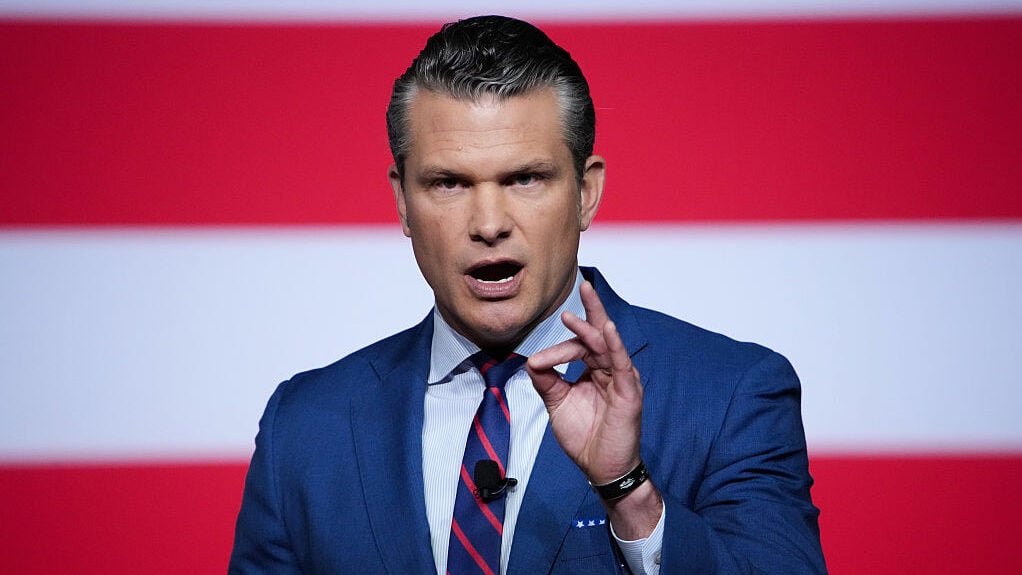Secretary of War Pete Hegseth’s Outcry Against DEI Policies in the Military
On Tuesday, Secretary of War Pete Hegseth made headlines with a forceful denunciation of Diversity, Equity, and Inclusion (DEI) policies within the military, challenging top generals and admirals to align themselves more closely with the Trump administration’s vision of a robust “warrior ethos.”
A Call to Arms Against Wokeness
Hegseth’s remarks were striking and unyielding, as he criticized what he described as an indoctrination of military leaders into an ideology that prioritizes diversity over readiness. He stated, “An entire generation of generals and admirals was told that they must parrot the insane fallacy that ‘Our diversity is our strength.’” This blunt assertion highlights a broader narrative popular among some political factions that view DEI initiatives as a distraction from essential military duties.
By implying that the military has become “woke,” Hegseth’s comments seem designed to evoke an emotional response, aligning with a growing cultural debate about the role of identity in public life and institutional performance. He further specified that there would be no room for the “dizzying DEI and LGBTQI+ statements” that have become commonplace, arguing they dilute the military’s core mission of national defense.
The New Military Mandate
Hegseth’s announcement came after the newly renamed Department of War had already taken steps to abolish its DEI policies. He used a visit to Marine Corps Base Quantico to clarify the administration’s commitment to what he termed a “merit” system. This shift aims to redefine military standards by focusing exclusively on individual capabilities—essentially demanding a return to traditional values in the military framework.
During his emphatic delivery, Hegseth made it clear that military leaders who disagreed with this new trajectory should “do the honorable thing and resign.” This stark ultimatum underscores the seriousness with which the administration intends to enforce its ideals and reshape the military.
The End of Politically Correct Leadership
One of the most significant elements of Hegseth’s address was a pledge to terminate what he described as “politically correct, overly sensitive, don’t-hurt-anyone’s-feelings leadership.” This phrase encapsulates a backlash against what some perceive as excessive caution in military practices. Hegseth has urged an immediate transformation to ensure the military is equipped to win battles rather than catering to cultural sensitivities.
He emphasized readiness as paramount, asserting, “Either we’re ready to win or we are not.” This statement serves not only as a rallying cry for military personnel but also positions the administration firmly against what it views as an encroachment of progressive policies within defense strategies.
Changes to Physical Standards and Grooming Policies
Another focal point of his address was the announcement that all military combat troops would now be required to meet the “highest male standard only.” This policy shift raises concerns about inclusivity and equality within the armed forces, particularly as it pertains to gender and physical capabilities.
Hegseth also introduced stringent new grooming standards, insisting, “No more beards, long hair, superficial individual expression.” These rules hinge on a traditional military image, privileging conformity over individuality, which some critics argue could disproportionately affect minority service members.
Specifically, the updated grooming policies aim to prohibit beards—a significant change following decades of allowances for service members affected by pseudofolliculitis barbae (PFB), a condition that affects a substantial number of Black men. The historic waivers provided these individuals with relief from the clean-shaven requirement to prevent painful skin issues. However, the newly imposed policy risks expelling service members who cannot adhere to these standards.
Civil Rights Concerns
The tightening of grooming policies has ignited a firestorm of criticism, particularly regarding their implications for racial equity within the armed forces. As noted by various outlets, including the Grio, the requirement could lead to significant ramifications for Black service members, particularly those suffering from skin conditions that complicate shaving. Historically, the military had recognized these medical concerns, making allowances to prevent discrimination.
The apparent reversal of such provisions has led advocates to express grave concerns over the potential reinforcement of racial disparities in military service, further complicating the dialogue around DEI policies.
A Military in Transition
Hegseth’s sweeping announcements reflect a fundamental shift in the stance of the U.S. military, aiming to re-establish a narrative rooted in traditional values and standards. His combative rhetoric emphasizing a departure from “wokeness” and the advocacy for a return to merit-based assessments raises critical questions about the future direction of the armed forces.
The implications of these changes—ranging from leadership style to grooming requirements—will undoubtedly resonate within the military and beyond, creating ripples in discussions surrounding diversity, equity, and inclusion that extend into various sectors of American life. As the military embarks on this contentious journey, only time will reveal the broader consequences of such a transformative pivot.



